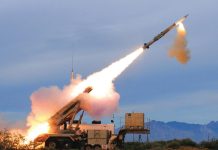The United States condemns China’s response sanctions introduced against persons and legal entities in the United States and Canada over these countries’ unilateral restrictions linked to the Chinese region of Xinjiang, US Secretary of State Antony Blinken said.
“We condemn the People’s Republic of China’s sanctions on two members of the independent and bipartisan @USCIRF [United States Commission on International Religious Freedom]. Beijing’s attempt to silence criticism of serious human rights abuse in Xinjiang only contributes to growing international scrutiny,” Blinken wrote on Twitter on Saturday.
On Monday, EU foreign ministers included four Chinese citizens and one organization on the sanctions list over alleged human rights violations and what they perceive as persecution of the Uyghur Muslim minority in Xinjiang. Beijing responded by imposing sanctions on ten European officials and four organizations.

The US, Canada and the UK later also joined in on the sanctions against China. In response, China sanctioned the chair of the US Commission on International Religious Freedom, Gayle Conelly Manchin, Vice Chair Tony Perkins, and the Canadian member of parliament Michael Chong.
The Chinese Foreign Ministry said on Saturday that Western sanctions were “based on rumors and misinformation.”
Meanwhile, the foreign ministries of several European countries, including France, Germany, Italy, and Finland, have summoned Chinese ambassadors over the Xinjiang sanctions issue.
US Slams Myanmar
“We are horrified by the bloodshed perpetrated by Burmese security forces, showing that the junta will sacrifice the lives of the people to serve the few. I send my deepest condolences to the victims’ families. The courageous people of Burma reject the military’s reign of terror,” Blinken wrote on Twitter on Saturday.
Earlier, the UN mission in Myanmar condemned the Saturday crackdown on protesters, saying it was “the bloodiest day since the coup.”
According to local media reports, over 50 people were killed during Saturday protests against the military rule in Myanmar. Fatalities were reported in the cities of Yangon, Bago, Mandalay and surrounding regions.
On the eve of the deadly protests, the military-controlled MRTV channel warned that participants in acts of violence and unrest “could be accidentally shot in the head or back.” Unlike other outlets, the state-run channel has reported that there were armed people among protesters who were shooting at soldiers and police, provoking security forces to return fire.
On February 1, Myanmar’s military seized power in the country, announcing a one-year state of emergency and vowing to take action against alleged voter fraud during the November 8 general election. The military said it was committed to the democratic system and vowed to hold new and fair elections after the state of emergency ends.
Protests have been held across Myanmar since the military took over. According to the Thailand-based Assistance Association for Political Prisoners of Myanmar, over 300 people have been killed during the protests since the start of February.
The US and the UK have imposed sanctions against multiple individuals and entities affiliated with Myanmar’s military, as well as some of Myanmar’s conglomerates. The latest round of sanctions was introduced on Thursday.




